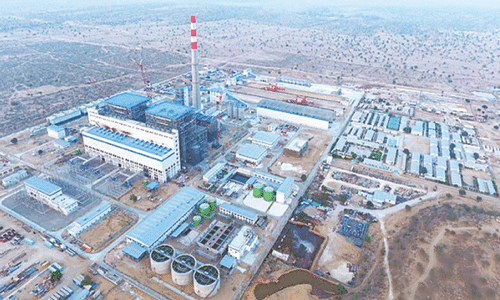
ISLAMABAD: The global digital wealth is concentrated around a small number of individuals and companies in US and China.
The platforms based in these two countries hold the lion’s share accounting for nearly 75 per cent of all patents related to block-chain technologies, 50pc of global spending on the ‘Internet of Things’, more than 75pc of the cloud computing market and as much as 90pc of the market capitalisation value of the world’s 70 largest digital platform companies.
The data was released by United Nations Conference on Trade and Development (UNCTAD) on Thursday in the first-ever ‘Digital Economy Report 2019’.
The report maps the flow, data and funds in the world’s digital economy and outlines the enormous potential gains and possible development costs as more of the world moves, connects and buys online.
Developing countries become mere data sets
The UNCTAD report warned that the gap between under-connected and the hyper-digitalised countries will widen and worsen inequalities if the existing situation remains unaddressed. Further, it calls for concerted efforts to spread the rapidly expanding digital economy’s gains to the many people who currently reap little benefit from it.
While highlighting that businesses that build digital platforms have a major advantage in the data-driven economy, the report notes that 40pc of the world’s 20 largest companies by market capitalisation have a platform-based business model.
Seven “super platforms”: Microsoft, Apple, Amazon, Google, Facebook, Tencent and Alibaba account for nearly two-thirds of the total market value of the top 70 platforms.
The combined value of platform companies with a market capitalisation of more than $100 million was estimated at more than $7 trillion in 2017 — 67pc higher than in 2015, according to the report.
Some digital platforms have grown to dominate key niches. Google has some 90pc market share in internet searches, while Facebook accounts for two-thirds of the global social media market and is the top social media platform in more than 90pc of the world’s economies.
The dominance of global digital platforms, their control of data, as well as their capacity to create and capture the ensuing value, accentuates concentration and consolidation rather than reducing inequalities between and within countries, the report notes.
It warns that developing countries risk becoming mere providers of raw data, while having to pay for the digital intelligence generated using their data.
Breaking this vicious circle requires out-of-the-box thinking, the report says. One way is to consider finding an alternative configuration of the digital economy that leads to more balanced results and a fairer distribution of the gains from data and digital intelligence.
Governments have a critical role in shaping the digital economy by defining the rules of the game, the report notes. This involves the adaptation of existing policies, laws and regulations, and the adoption of new ones in many areas.
Policy responses need to consider increased difficulties of enforcing national laws and regulations with respect to cross-border trade in digital services and products, the report recommends.
Further, they should explore new pathways for local value creation and capture, and structural transformation through digitalisation, it says.
National development strategies should also seek to promote digital upgrading (value addition) in data value chains, and to enhance domestic capacities to “refine” the data.
Published in Dawn, September 6th, 2019














































